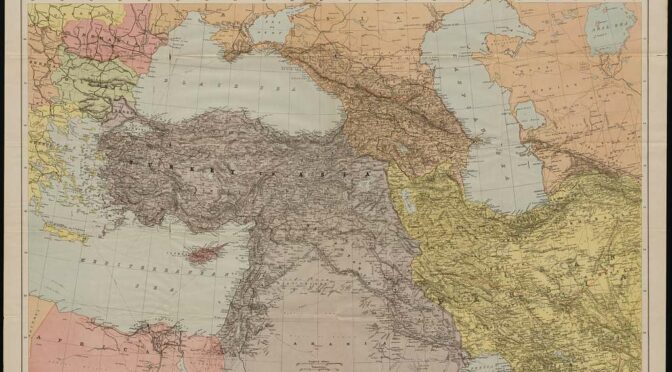Article published in The Daily Telegraph, 26 June 2025. © Richard Kemp
Only those who don’t understand Middle East politics will take seriously reports that some Arab leaders and diplomats are concerned about Israel’s recent pre-emptive action against Iran. This mostly amounts to posturing for the benefit of their own populations. Many of their people are vehemently against Israel, for religious reasons but also to a large extent due to their governments’ own anti-Israel indoctrination from previous times.
It is a similar position to the one Western European governments find themselves in. Keir Starmer’s false criticisms and actions against Israel, such as arms suspension and sanctions, are surely due not to genuine concerns about Israel but the need to bolster support among Labour’s electorate, much of which is vehemently anti-Israel.
Arab leaders are well aware of the dangers they face from Iran. The ayatollahs are most vocal against Israel but they hate the Sunni Arab states just as much, if not more. This is more than mere rhetoric. Iran’s proxies have attacked the UAE and Saudi Arabia in recent years and Iran itself attacked US bases in Iraq and a few days ago in Qatar. Meanwhile Iran has for years been working to subvert Jordan and use it as a base of attack against Israel.
An Iranian nuclear capability threatened Arab countries as well as Israel. For years Israel has been understood to possess a nuclear capability. The Arabs knew that presented no threat to them. Only as the Iranian nuclear programme gained momentum did several countries in the region, especially Saudi Arabia, begin to seriously investigate acquiring their own nuclear capability.
With the exception of Iran itself and Syria, Israel has not attacked any country in the region and the Arabs know it will not. All of its offensive operations, in Lebanon, Yemen and Iraq, have been only against Iranian proxies that have attacked Israel.
In the case of Syria, which is formally at war with Israel, the destruction of much of its military capability was a necessary defensive action to counter a potentially developing threat.
And today Israel and the new regime in Syria have a constant dialogue with talk of al-Julani normalising relationships and even potentially joining the Abraham Accords. That of course remains precarious, to say the least, but is perhaps symptomatic of a new reality in the Middle East that is forming as a result of Israel’s strong defence against Iranian aggression.
With talk of Arab fears of Israel, what’s been happening on the other side of the ledger? When Iran fired missiles and drones at Israel in April last year, Jordan, Saudi Arabia, Qatar, the UAE and Bahrain joined in its defence. And behind the scenes many Arab countries have been quietly cheering Israel on in its war against Hamas in Gaza. Some have provided practical support. They want Israel to prevail in Gaza because they also fear the Muslim Brotherhood, of which Hamas is an offshoot. They know that if Hamas prevails it will encourage jihadists in their own countries.
The main motivation for Arab countries joining the Abraham Accords during Trump’s first administration was Israel’s military strength and Benjamin Netanyahu’s willingness to use it. That was bolstered by Obama’s apparent abandonment of America’s Sunni allies in favour of strengthening Iran. If America could no longer be relied upon to shield them from Iranian aggression, Israel could be. That has been redoubled in the recent 12-day war. This makes an expansion of the Abraham Accords to include Saudi Arabia and other Arab countries much more likely. They may have confidence in the current US administration, but what about the future? They may not fall in love with Israel but they do know that it has no choice but to remain the strong horse forever.

